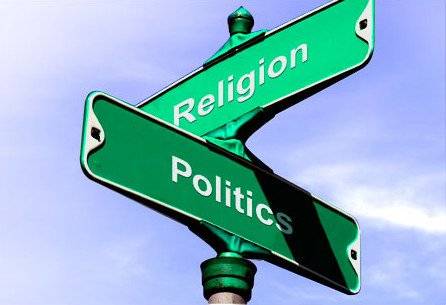In most of the Islamic world, the word "secularism " often leads to extreme conditions of paranoia. Most of the conservative Muslims consider secularism as a well-planned conspiracy of the West to destroy our own Islamic system of running the state and other affairs. While many of us happily enjoy Western products and send our children to those very countries for better education, we do not reflect on the root cause of the success achieved by Europe vis-à-vis the decline faced by the Islamic world on the same scale. There are plenty of reasons why Europe is more successful than us today. We can argue that vast industrialization and technology contributed majorly towards it. However, the main reason lies in the separation of church from the state affairs. Imagine a country where we teach our children science in classroom but everywhere outside, religion drives the lifestyle, choices and attitudes. The same paradox can be seen in the education sector itself. How then could science flourish under this environment?
For technology and industrialization, one needs an environment where science and research are nurtured and nourished. No country can give its people rational education if religion is still involved in the business of state. For science to progress, we need a society where everything, including religion itself, can be questioned, analyzed, dissected and criticized based on logic and reason. Secularism thus paves the path for progress of science. Without secularism, competing with modern Europe is merely a dream.
Coming to the main point which is the cause of constant whining that secularism is a western product and poses a threat to Islamic ideology and hence should not be followed in the Islamic world. First and foremost, let us try to remove this misunderstanding. Religions are not confined to one place and are instead spread across geographical ones attracting different communities belonging to various places and countries. Likewise, political ideologies are also not confined and have an extensive outreach. For instance, the Socialist ideology put forward by Karl Marx and Fredrick Engels, two Germans, is not confined to Germans or Germany alone. In the same manner, Capitalism is not confined to one place only. We can therefore arrive at the logical conclusion that secularism is not confined to the West and is found way beyond the western world . Subcontinent produced many secular Muslim leaders who, in spite being religious scholars, strongly believed in secularism and struggled for a united and secular India.
Subcontinent produced two main ideologues. Maulana Abul Kalam Azad and Allama Muhammad Iqbal. Iqbal's political ideology was " juda ho deen siyasat sey to reh jati hai changezi". Iqbal insisted that Muslims are a separate nation because of the fact that they have a different religion and culture. On the other hand, Azad envisaged a Secular India where all the communities were equal in the eyes of the law. Maulana Azad insisted that in the modern world, nations are identified by the land and not by any religion or cult. Both the ideologies are correct according to the teachings of Islam but Azad's ideology represents modern thinking while Iqbal's ideology takes us back to the phase when Muslims were strong and united as a community. One may wonder why Azad's ideology is in sync with Islam when Islam insists so much on politics and state.
We explain this by arguing that we make our decisions taking into consideration present-day scenarios and the dynamics at play. When Sulah e Hudaibiya(Treaty Of Hudaibiya) was being signed between the Muslims and Non Muslims, non Muslims got upset when Muhammad (PBUH) used the term "Prophet" before his name. Since Muslims were in a weak position and the agreement was essential for the Muslim cause, the Muhammad conceded to their demand and removed the term "Prophet" before his name. This is a classic example of separating religion from politics for the sake of betterment of Muslims. Later when the Muslims were in a dominant position, Prophet Muhammad established an Islamic state. We should also keep it in mind that at the time of Muhammad (PBUH) Muslims were united as one nation There were no differences and conflicts over sects. However when differences arose between Muslims in the Islamic state, The Battle of Siffin , The battle of Camel(The Battle of Jamal) and karbala took place destroying the unity of Muslims for the times to come. Therefore, considering the present situation of Muslims when Islam is divided in many different sects, which version of Shariat would be universally accepted by all Muslims? It is natural that it would open the doors of more religious differences and conflicts among Muslims. Present day world is increasingly associating Daesh/ISIS with Islam putting Muslims and Islam under the pressure to redefine and showcase to the world its fundamental ideologies and principles to convince the opponents that Islam is not what ISIS represents. It is only Maulana Azad's ideology of a secular state that can rescue us from the chaos while we continue paying the price of Iqbal's ideology






